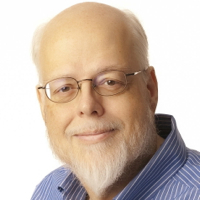The e-mails continue to trickle in from Channel 12 viewers wondering if I have reported the fact that the ABC affiliate had launched high-definition local newscasts.
No, I haven't, because it hasn't.
Channel 12 has changed the format of its picture to fit the 16:9 dimensions of modern wide-screen televisions. But that picture remains standard definition, and there's no word when it will join Channels 4 and 6 in going high-def for its local newscasts. Network shows and syndicated programs are already in high-definition on Channel 12.
It's another symptom of the identity problem HD television has had since it started back in the 1990s. Some viewers don't know it when they see it -- or when they don't.
The slow move to HD has been illustrated by some new numbers from Nielsen Media Research. While Nielsen reported that more than half of American households have an HDTV in their home -- the numbers on HD viewing are much lower.
Some 56 percent of American households have at least one HDTV, but only 13 percent of cable viewing and 19 percent of over-the-air TV watching is of high-def channels.
One thing that affects that viewing is that some households may have a number of TVs, but only one of them can receive high-definition telecasts.
Sports is the top draw for high-def viewing, with 21 percent of it viewed in HD. Only 2 percent of children's shows are viewed in HD.
Based on years of talking to TV viewers confused by high-definition, I'm convinced that part of it has to do with an audience that's confused by what's HD and what isn't.
From the beginning, the transition to HD has been bumpy. Consumers bought "HD-ready" TVs without understanding that didn't automatically yield high-definition images. Through attrition, the number of HD sets continues to rise as replacements for old SD sets.
While high-definition TV hasn't exactly become must-see TV, the electronics industry is starting the push to get us to move on to 3-D TV.
I'm not convinced many of us will invest with that next generation of TVs. A lot of us haven't quite absorbed this one.
On TV: That NBC Thursday comedy shake-up I wrote about yesterday is official, starting in January when "Parks and Recreation" returns, and "30 Rock" goes to 9 p.m., followed by "Outsourced." And NBC is holding off on "The Event" until it relaunches the show at the end of February. Here are all the details.
- Speaking of "30 Rock," NBC has given it an early renewal for next season.
- "Sarah Palin's Alaska" pulled in nearly 5 million people in its Sunday night premiere, TLC's biggest premiere ever, according to Nielsen Media Research numbers. With her built-in political following, that isn't surprising. It will be interesting to see if those folks watch the rest of the travelogue.
- Milwaukee's Sweetwater Organics got face time on Brian Williams' "NBC Nightly News" Monday night as part of the newscast's coverage of "Green Week."
- The guy who cooked up the failed prime-time version of Jay Leno, NBC Universal chairman Jeff Gaspin, is officially out.
- The Hollywood Reporter's Live Feed blog is warning fans of AMC's "The Walking Dead" that season two won't air until next October. The six-episode first season is already half over.
Tina Fey's latest accolade: Her "30 Rock" just got picked up for a sixth season, and over the weekend, PBS aired a Tina Fey tribute as she accepted the Mark Twain Prize for American Humor.
Here's the video:
Tim Cuprisin is the media columnist for OnMilwaukee.com. He's been a journalist for 30 years, starting in 1979 as a police reporter at the old City News Bureau of Chicago, a legendary wire service that's the reputed source of the journalistic maxim "if your mother says she loves you, check it out." He spent a couple years in the mean streets of his native Chicago, and then moved on to the Green Bay Press-Gazette and USA Today, before coming to the Milwaukee Journal in 1986.
A general assignment reporter, Cuprisin traveled Eastern Europe on several projects, starting with a look at Poland after five years of martial law, and a tour of six countries in the region after the Berlin Wall opened and Communism fell. He spent six weeks traversing the lands of the former Yugoslavia in 1994, linking Milwaukee Serbs, Croats and Bosnians with their war-torn homeland.
In the fall of 1994, a lifetime of serious television viewing earned him a daily column in the Milwaukee Journal (and, later the Journal Sentinel) focusing on TV and radio. For 15 years, he has chronicled the changes rocking broadcasting, both nationally and in Milwaukee, an effort he continues at OnMilwaukee.com.
When he's not watching TV, Cuprisin enjoys tending to his vegetable garden in the backyard of his home in Whitefish Bay, cooking and traveling.





